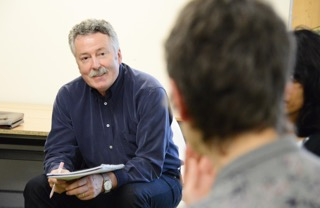Abstract
The European Forum for Restorative Justice defines restorative justice as an inclusive approach of addressing harm or the risk of harm through engaging all those affected in coming to a common understanding and agreement on how the harm or wrongdoing can be repaired, relationships maintained and justice achieved.
This definition is based upon a set of values and principles rather than a method like mediation, which are: respect for human dignity, solidarity and responsibility for others, justice and accountability, truth through dialogue. These values also distinguish restorative justice from the methods and tools used in the formal criminal justice system.
The European Forum for Restorative Justice defines the function of restorative justice as connecting people to restore just relations. A restorative process involves all the people concerned by the harmful act (meaning the victim(s) who are at the centre of the process, but also friends, family and the wider community affected). This approach seeks to acknowledge and repair the harm through dialogue among all the involved parties. It can take the form of mediation, restorative conferences, or restorative circles.
Polarisation, which can lead to radicalisation and violent extremism, refers to a social and political fragmentation of society fueled by an “us-and-them” thinking that challenges and weakens the values and relationships on which democracy is founded. Its harmful effects are not prevented by the prosecution and exclusion of perpetrators in prisons. Nor is the suffering of the victim fully alleviated by bringing the perpetrator to justice. Processes of restorative justice, on the other hand, can be used to mitigate and prevent polarisation, and are indeed already used in a number of municipalities in Europe to locally tackle conflicts among residents.
For example, they have been used in Vienna (Austria) to diffuse tensions between native and more recently settled residents, and in Belfast in Northern Ireland (UK) between members of the Catholic and Protestant communities.
Some local authorities go further and strive to embed restorative processes across local government structures, as is the case with Leuven (Belgium), which launched its Restorative City project in 2018. It aims to develop methodologies that facilitate the use of direct dialogue for dealing with polarising tendencies, ‘otherness’, conflict and tensions within society. This approach builds security through relationships of trust rather than a security based upon technology or law enforcement.
Implementation guidelines
Local and regional authorities wishing to build a Restorative City should first define what they want, such as a harmonious, safe and inclusive local society, or improved public services delivery through respectful relationships between employees and the public. The specific objectives and methods will vary according to this general objective.
A Restorative City project requires top-down political support and leadership, e.g. from the Mayor and senior managers of public agencies. As such, a steering group should be formed representing all local interests: political, public services, relevant non-governmental organisations and representatives of key local neighbourhoods and ethnic communities.
In order to ensure quality and effective implementation, a ‘Restorative Hub’ – with trained staff – should be established as a contact point for all those seeking help and support when it comes to decreasing tensions and solving conflicts. Continuous training should also be available for the public, local actors, police, teachers and other stakeholders on awareness raising and restorative justice practises.
Lastly, evaluation of the actions undertaken is key to make an initiative accountable to its funders, to generate learning from the actions taken and to improve performance and outcomes in the future.
Tim Chapman

A long-time Efus collaborator, Tim Chapman is a Visiting Professor at Università degli Studi di Sassari in Sardinia. Tim lectured at the University of Ulster in Northern Ireland, UK from 2002 to 2019 teaching on the Masters programme in Restorative Practices. He has contributed to the development of restorative justice practice in both the community and statutory sectors in Northern Ireland. He spent 25 years working in the Probation Service in Northern Ireland. He played an active part in developing effective probation practice in the UK particularly through the publication of Evidence Based Practice, written jointly with Michael Hough and published by the Home Office. His ‘Time to Grow’ model for the supervision of young people has influenced youth justice practices especially in Scotland. He has published widely on restorative justice and effective practice and has conducted significant research into restorative justice in Northern Ireland including the ALTERNATIVE project which focused on restorative justice and intercultural conflict. Two books have been recently published on this research. In 2015 he wrote with Maija Gellin and Monique Anderson A European Model of Restorative Justice with Children and Young People (International Juvenile Justice Observatory, IJJO). He is chair of the Board of the European Forum for Restorative Justice.



